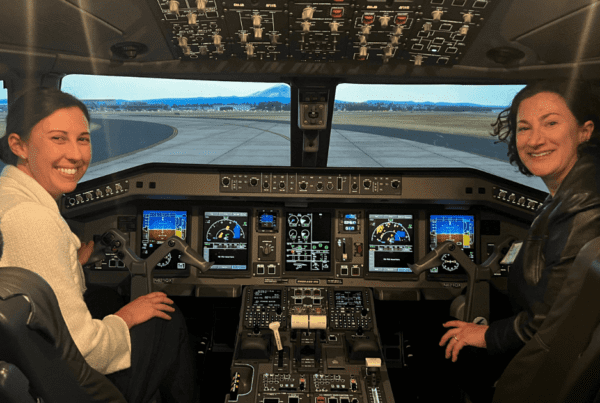Meet Eileen Klein, MD, MPH, and Tracy Mroz, PhD, OTR/L, FAOTA, this year’s recipients of the School of Medicine Excellence in Mentoring Women Faculty Award. Awardees are chosen based on recommendations from peers and mentees received by the Dean’s Standing Committee for Women in Medicine and Science.
Klein is a professor of Pediatrics at the UW School of Medicine as well as chair of Promotions within the department. She works in the Emergency Department at Seattle Children’s, directs the Emergency Department Research program and served for 20 years as director of its Pediatric Emergency Medicine Fellowship.
Mroz is an occupational therapist and associate professor in the Department of Rehabilitation Medicine. She is a health systems researcher and co-director of the UW Advancing Health Services & Policy in Rehabilitation Lab.
We asked Klein and Mroz what the award means to them, what their mentorship philosophy is and why it’s so important for women to mentor other women.
What does this award mean to you?
Klein: It is heartwarming to receive recognition and it feels great to know that others see what I strive to do. It feels amazing to realize that people see me in this way. My job now is to keep doing the things others feel are meaningful to their success.
Mroz: It is a truly immense honor and the most meaningful award I’ve received as faculty. It speaks to something I care so deeply about: helping other people navigate academia, which isn’t always easy. I’m humbled by this award; I ugly-cried when I read the recommendation letters.
What is your experience as a mentor?
Klein: Early on in my career, I worked mainly with Pediatric residents and really enjoyed mentoring them early in their careers. Now I primarily mentor fellows and faculty, and my biggest joy is working with them on their research. In my role as Chair of Promotions for the Department of Pediatrics, I work with people at different stages in their career and gain great satisfaction in helping to support junior and mid-career faculty as they move forward in their faculty roles.
Mroz: I started working with doctoral students not long after I joined UW in 2014 and now I mentor doctoral students, postdoctoral fellows, junior faculty and research staff. Mentoring is one of the most rewarding parts of my job, so I jumped at the chance to join the Mentoring Committee for the Department of Rehabilitation Medicine and be part of the efforts to ensure all of our faculty are primed to succeed.
What is your approach to mentoring?
Klein: Mentoring is a two-way street: I learn so much from the people I mentor. Getting to know people and what their life is like and how they want to do their work is really important. You’re not making decisions for mentees, you’re helping them identify what they want to do.
Mroz: My mission is to be open about the realities of faculty life and remind my mentees that having a good work-life balance will support, not hinder their work. I especially want parents to know that they don’t have to sacrifice their family life for their academic life, that it’s OK to be the one to reschedule a meeting because of a sick kid or to attend a school function.
Why is it important for women to have women mentors?
Klein: Mentoring matters because it, and the people we work with, are our future. It’s important for women as well as all underrepresented people to have mentors who understand some of their life story because they’ve had similar stories. It’s also really important for people to see someone like them who’s able to get into a position that they want to be in.
Mroz: There’s a lot of implicit knowledge in how an academic career works that I believe should be explicit for everyone, particularly in areas where women are not the majority of faculty. When these “rules” are not transparent, it’s critically important for this sort of info to be shared — for all underrepresented faculty. Plus, if you only ever hear that perfect story of success without knowing what really goes on behind the scenes, it can reinforce imposter syndrome. So, I like to share the not-as-public backstory about when things didn’t go the way I hoped.
What did you learn from your own mentors?
Klein: I learned that even if an opportunity comes up that is not in the direction you thought you were going, it’s OK to give it a go. I also learned to bring people along for the ride and ride the wave together, to collaborate and be inclusive and to help others grow so that we all succeed together. I work hard to apply those principles when I work with my mentees.
Mroz: I had three different mentors during my postdoctoral fellowship who had very different opinions on how a research career should proceed. They were a fabulous group of people who really complemented each other. I have great memories of sitting in these meetings where they’d disagree in a friendly way with each other — those were such open, honest conversations about the many ways you could build a career. Because of that experience, I lead a lot of conversations with my mentees with a clear, “This is my perspective.”
When you aren’t working, how do you like to spend your time?
Klein: I love spending time with my family. I have two daughters, ages 28 and 25. They are amazing human beings. I learn so much every day from both of them. My husband and I like to go on cycling trips. We’ve gone to Bryce and Zion, to Death Valley, to the Badlands — this summer we’re going to Corvalis. We get to see a lot of the country and it’s beautiful.
Mroz: I love going hiking with my family. I have two daughters, ages 10 and 12, and they are a constant reminder of the need to support and mentor women. We like to go to Snow Lake, and Rattlesnake Ledge is a classic. We also enjoy going to local parks. Even though I’ve been here for a decade, I still get excited every time the mountains are out.


